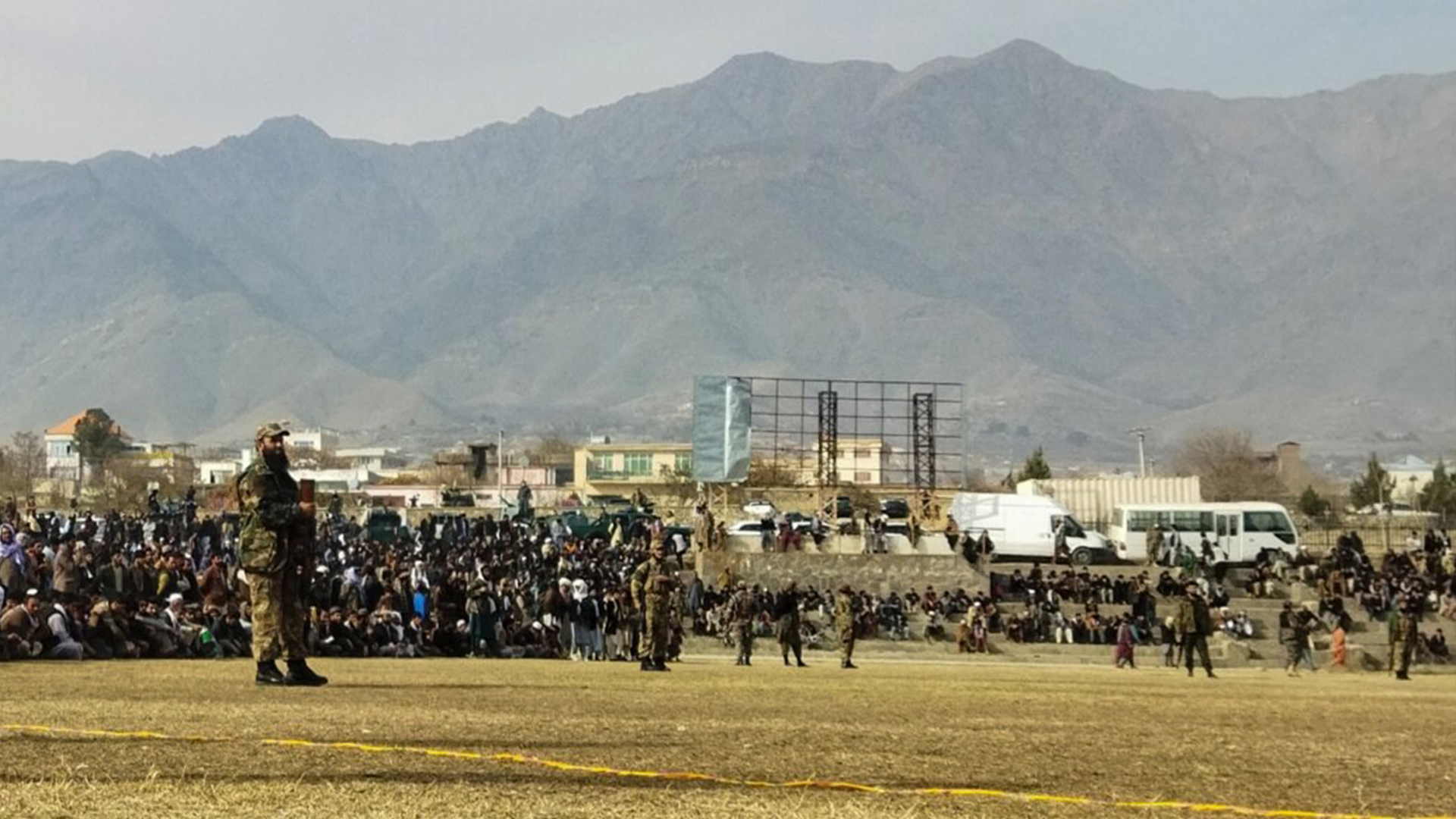In Afghanistan’s Ghazni city, the Taliban recently carried out a public execution, marking the third instance of such punishment since their return to power in 2021. The execution, conducted in a football stadium before thousands of spectators, underscores the Taliban’s uncompromising adherence to their interpretation of Sharia law. This essay explores the implications of the Taliban’s implementation of Sharia law, examining the recent executions, the broader context of public punishments, and the impact on human rights in Afghanistan.
The Public Executions:
In Ghazni city, two individuals were sentenced to death by the Taliban’s Sharia Court for their involvement in a murder case. The execution was carried out in a public stadium, where both convicts were shot at close range, in full view of thousands of spectators. The presence of family members pleading for forgiveness added to the harrowing spectacle, highlighting the brutality and impunity with which the Taliban enforce their version of justice.
The Legal Justification:
The Taliban justify their implementation of Sharia law as a means to uphold Islamic principles and maintain social order. According to their Sharia Court, the two individuals received death sentences for allegedly stabbing two people to death. The approval of Taliban’s Supreme Leader Hibatullah Akhundzada further legitimizes the punishment, showcasing the centralized control and authority within the Taliban hierarchy.

The Human Rights Concerns:
However, the execution raises grave concerns regarding human rights violations and the lack of due process under Taliban rule. The absence of fair trials, the denial of legal representation, and the use of public executions as a form of deterrence undermine fundamental principles of justice and dignity. The rejection of pleas for forgiveness from the victims’ families further compounds the injustice, perpetuating cycles of violence and retribution.
The Pattern of Punishments:
The recent executions are part of a broader pattern of public punishments implemented by the Taliban since their return to power. Reports indicate that at least four individuals have been sentenced to death in similar fashion, while hundreds of others, including women, have been subjected to flogging and other forms of corporal punishment. These punishments are often carried out in front of large crowds, amplifying the fear and intimidation tactics employed by the Taliban regime.
Sharia Law in Afghanistan:
The Taliban’s imposition of Sharia law in Afghanistan represents a significant departure from the country’s previous legal framework. Sharia law encompasses a wide range of regulations governing various aspects of life, including family matters, finance, and criminal justice. While Sharia principles are followed in many Islamic countries, the Taliban’s interpretation tends to be more rigid and authoritarian, leading to widespread human rights abuses and social unrest.
Conclusion:
The public executions carried out by the Taliban in Afghanistan highlight the harsh realities faced by the Afghan people under their rule. As the Taliban continue to enforce their version of Sharia law, human rights violations persist, and justice remains elusive for many. The international community must condemn these egregious violations and work towards ensuring accountability and protection for the people of Afghanistan. Only through concerted efforts to uphold human rights and promote peace can the cycle of violence and injustice be broken in Afghanistan’s troubled landscape.




